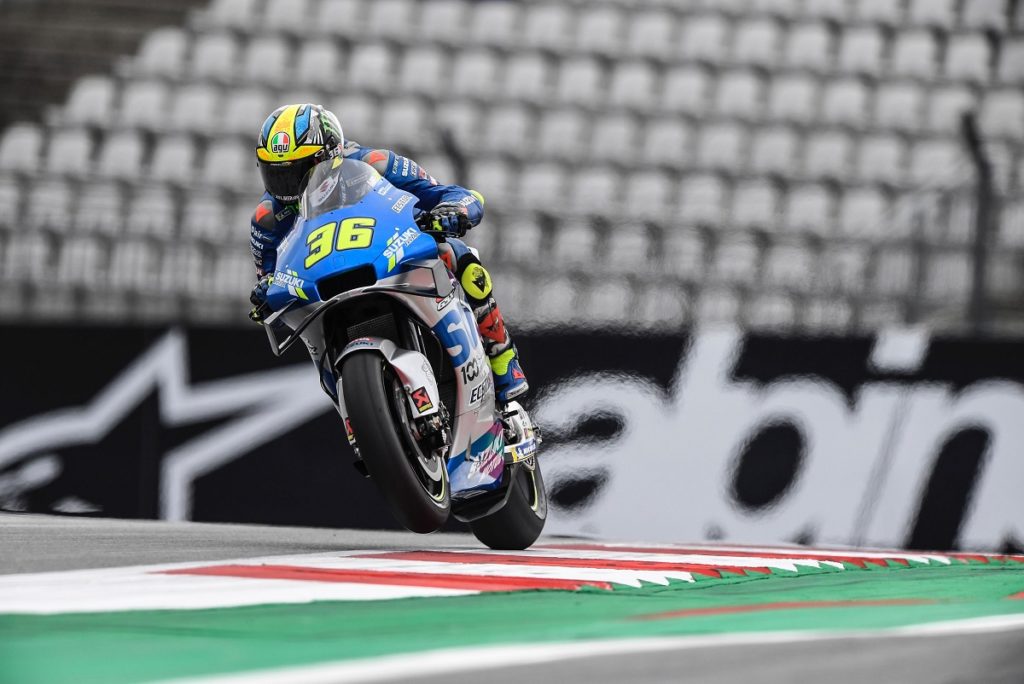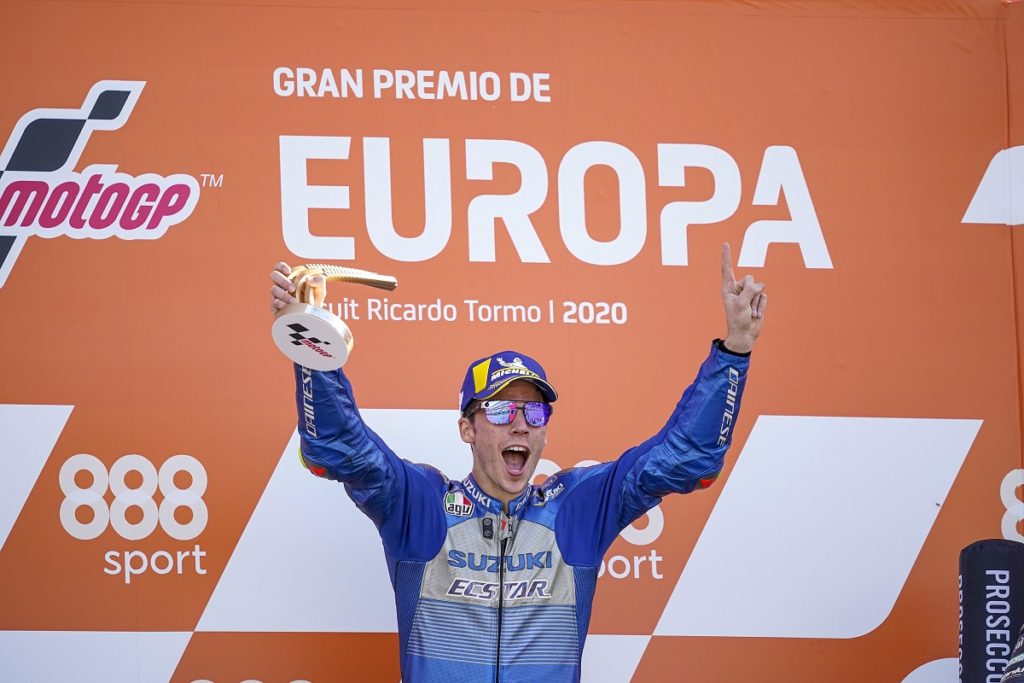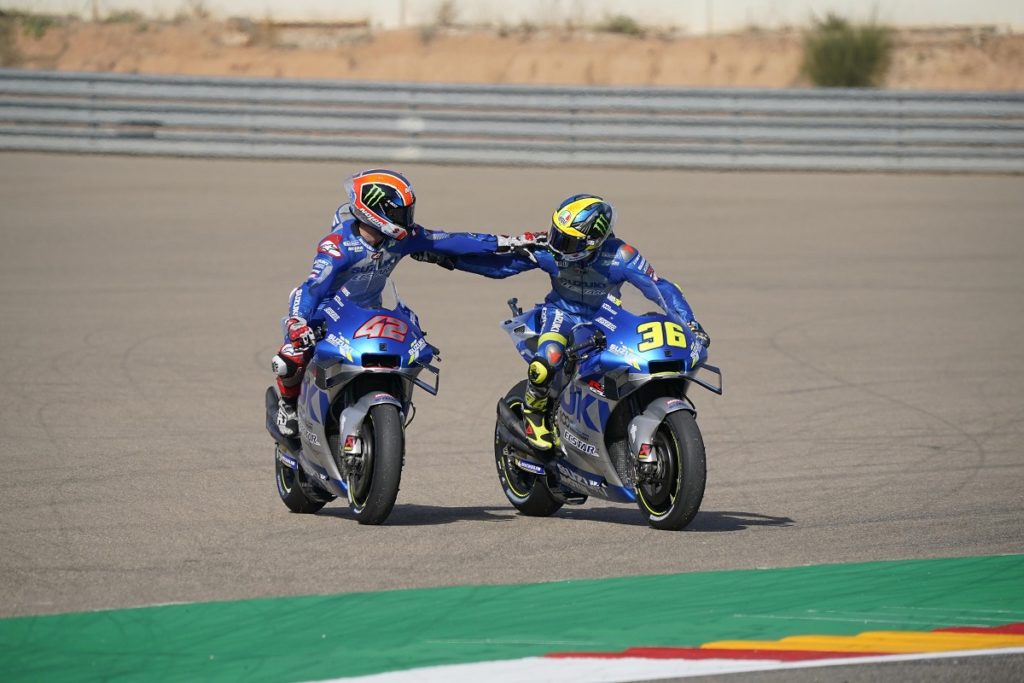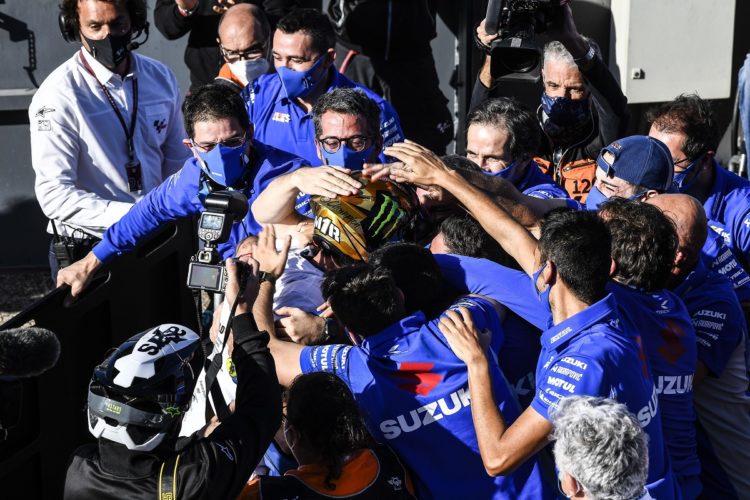Part two of Motorsport Week’s 2020 MotoGP season review will tell the tale of Suzuki, the underdog manufacturer that got all its ducks in a row on its way to commanding riders and teams title successes.
Suzuki has established itself as a rising force ever since the Japanese manufacturer returned to the premier class of motorcycle racing full-time for the 2015 season.
It had secured three wins ahead of the shortened ’20 campaign, though even Suzuki couldn’t have dreamt of what they could achieve with the updated GSX-RR against better funded rivals such as Honda and Ducati.
There was a very real chance of the Hamamatsu-based marque sweeping all three main MotoGP titles ahead of the season finale in Portugal-having already wrapped up the riders and teams prizes at Valencia a week prior-though a disastrous day out at Portimao saw them eventually classify third in the manufacturers standings.
The year started badly for Suzuki though, with two-time MotoGP victor Alex Rins skipping the Spanish Grand Prix after injuring his shoulder in a practice crash, while Joan Mir crashed out of the event while running strongly.
Mir’s managed to bag solid points in the second Jerez encounter with a solid fifth, though another DNF at Brno left his points account looking relatively empty following the first three races.
This was as bad as it would ultimately get for the Spaniard across the year though as he went on to score a first ever podium finish with a run to second behind Andrea Dovizioso’s Ducati in the Austrian GP, before being denied a debut premier class win by a late red flag at the second Red Bull Ring event just seven days later, though fourth was still a decent return.

The ’17 Moto3 world champions incredible consistency-that would ultimately help to carve out his path to the ultimate prize in motorcycle racing-saw him stand on the rostrum six times in the final eight races, with only a average run to 11th in the wet French GP as well as a electronics failure in the season finale in Portugal denying him a clean sweep.
For the bulk of the second half of the year after taking the series lead from Fabio Quartararo following the first contest held at Motorland Aragon the chief question was whether Mir would become the first premier class world champion to have not won a race during the year.
Emilio Alzamora was the last man to achieve the feat across all classes, having taken the 1999 125cc world title by just single point over Marco Melandri after collecting ten podiums across the 14-race championship.
Content with already making enough history as he romped towards a maiden MotoGP title-Suzuki’s first in two decades-Mir put in a stunning performance in the European GP at Valencia to defeat team-mate Rins to secure an emphatic first victory, a success that meant a seventh place result in the following event was enough to tie up the championship with a round to spare.

Suzuki had also secured the teams accolade in the same outing, helped by Rins’ late season charge that saw him become his team-mate’s most likely title rival, albeit with his chances remote due to Mir having opened up a 37 point lead heading into the final two races of the year as a result of his Valencia win.
Coupled with the collapse of Yamaha riders Fabio Quartararo and Maverick Vinales, as well as Dovizioso slipping out of contention, Rins was aided by a purple patch of form after recovering fully from his shoulder injury that saw him rack up four rostrums in five events-a crash from second in the French GP denying him five from five.
Despite slipping behind Franco Morbidelli by the end, Rins’ third place in the riders standings as the flag came down on the season backed up Suzuki’s impressive step forward, the manufacturer having gone its own way with development by refusing to simply throw more power at the GSX-RR to try and catch up to its rivals.
Suzuki could garner extra satisfaction having seen its policy of nurturing young talent come good after bringing both Mir and Rins up from Moto2, this following its successful run with Vinales after granting the now Yamaha factory rider’s graduation from the intermediate class.
Its technical team-headed by Technical Manager Ken Kawachi- had remained steadfast in making sure the chassis could handle every ounce of power thrown at it, in turn creating a machine that worked with its riders and not against them, allowing Rins and Mir to extract the GSX-RR’s potential without risking a crash into every braking zone.
This should put the squad in good stead due to the ban on new bikes being introduced for ’21, but for now Suzuki can head into the winter period content with the fact that they reached the top of the pinnacle of motorcycle racing dancing to its own beat.










